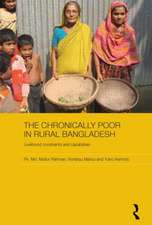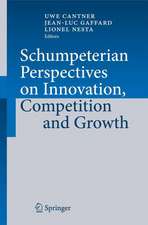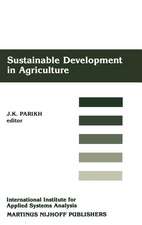Solidarity Economy and Social Business: New Models for a New Society: SpringerBriefs in Economics
Editat de Noriatsu Matsui, Yukio Ikemotoen Limba Engleză Paperback – 13 mar 2015
Din seria SpringerBriefs in Economics
-
 Preț: 444.35 lei
Preț: 444.35 lei -
 Preț: 264.79 lei
Preț: 264.79 lei - 15%
 Preț: 462.51 lei
Preț: 462.51 lei -
 Preț: 47.33 lei
Preț: 47.33 lei -
 Preț: 273.32 lei
Preț: 273.32 lei -
 Preț: 376.04 lei
Preț: 376.04 lei -
 Preț: 379.09 lei
Preț: 379.09 lei -
 Preț: 380.07 lei
Preț: 380.07 lei -
 Preț: 377.35 lei
Preț: 377.35 lei -
 Preț: 379.09 lei
Preț: 379.09 lei -
 Preț: 376.59 lei
Preț: 376.59 lei -
 Preț: 408.27 lei
Preț: 408.27 lei -
 Preț: 379.09 lei
Preț: 379.09 lei -
 Preț: 383.28 lei
Preț: 383.28 lei -
 Preț: 378.54 lei
Preț: 378.54 lei -
 Preț: 377.95 lei
Preț: 377.95 lei -
 Preț: 340.23 lei
Preț: 340.23 lei -
 Preț: 380.25 lei
Preț: 380.25 lei -
 Preț: 378.12 lei
Preț: 378.12 lei -
 Preț: 376.04 lei
Preț: 376.04 lei -
 Preț: 376.04 lei
Preț: 376.04 lei -
 Preț: 379.68 lei
Preț: 379.68 lei -
 Preț: 381.00 lei
Preț: 381.00 lei -
 Preț: 375.23 lei
Preț: 375.23 lei -
 Preț: 376.80 lei
Preț: 376.80 lei -
 Preț: 378.54 lei
Preț: 378.54 lei -
 Preț: 377.57 lei
Preț: 377.57 lei -
 Preț: 376.04 lei
Preț: 376.04 lei -
 Preț: 378.92 lei
Preț: 378.92 lei -
 Preț: 375.62 lei
Preț: 375.62 lei -
 Preț: 379.09 lei
Preț: 379.09 lei -
 Preț: 353.67 lei
Preț: 353.67 lei -
 Preț: 342.14 lei
Preț: 342.14 lei -
 Preț: 375.45 lei
Preț: 375.45 lei -
 Preț: 379.09 lei
Preț: 379.09 lei -
 Preț: 377.35 lei
Preț: 377.35 lei -
 Preț: 344.86 lei
Preț: 344.86 lei -
 Preț: 377.35 lei
Preț: 377.35 lei -
 Preț: 345.89 lei
Preț: 345.89 lei -
 Preț: 377.57 lei
Preț: 377.57 lei -
 Preț: 343.83 lei
Preț: 343.83 lei -
 Preț: 378.12 lei
Preț: 378.12 lei -
 Preț: 345.06 lei
Preț: 345.06 lei -
 Preț: 379.48 lei
Preț: 379.48 lei -
 Preț: 379.48 lei
Preț: 379.48 lei -
 Preț: 380.07 lei
Preț: 380.07 lei -
 Preț: 375.45 lei
Preț: 375.45 lei -
 Preț: 445.33 lei
Preț: 445.33 lei -
 Preț: 378.54 lei
Preț: 378.54 lei
Preț: 353.14 lei
Nou
Puncte Express: 530
Preț estimativ în valută:
67.58€ • 73.38$ • 56.77£
67.58€ • 73.38$ • 56.77£
Carte disponibilă
Livrare economică 28 martie-03 aprilie
Livrare express 15-21 martie pentru 43.50 lei
Preluare comenzi: 021 569.72.76
Specificații
ISBN-13: 9784431554707
ISBN-10: 443155470X
Pagini: 108
Ilustrații: VII, 108 p. 13 illus., 5 illus. in color.
Dimensiuni: 155 x 235 x 10 mm
Greutate: 0.21 kg
Ediția:2015
Editura: Springer
Colecția Springer
Seria SpringerBriefs in Economics
Locul publicării:Tokyo, Japan
ISBN-10: 443155470X
Pagini: 108
Ilustrații: VII, 108 p. 13 illus., 5 illus. in color.
Dimensiuni: 155 x 235 x 10 mm
Greutate: 0.21 kg
Ediția:2015
Editura: Springer
Colecția Springer
Seria SpringerBriefs in Economics
Locul publicării:Tokyo, Japan
Public țintă
ResearchCuprins
Chapter 1 Theory of Solidarity Economy and Social Business (Ikemoto, Y).- Chapter 2 Microcredit, Inclusive Finance and Solidarity (Matsui, N. & Tsuboi, H).- Chapter 3 Grameen Model Microcredit in Spain (Tsuboi, H. & Nuzrul Chowdhury).- Chapter 4 Renewable Energy for Off-Grid Villages: Grameen Shakti (Tsuboi, H).- Chapter 5 Yogurt for the Poor: Grameen Danone Foods (Tsuboi, H).- Chapter 6 Distributing Clean Water in Communities: Grameen Veolia Water (Tsuboi, H).- Chapter 7 Local Currency and Regional Revitalization (Matsui, N).- Chapter 8 System of Solidarity in Organic Agriculture (Kim, K. & Ikemoto, Y).- Chapter 9 Certified Coffee and Solidarity Economy (Ikemoto, Y).- Chapter 10 Social Business Promotion Law in Korea (Kim, K).
Caracteristici
Considers the activities of a solidarity economy for overcoming widening disparity and poverty caused by market mechanisms Analyzes the diverse activities of the Grameen Bank and other organizations in social business Examines and introduces practices related to the solidarity economy mainly in Asia Includes supplementary material: sn.pub/extras


















